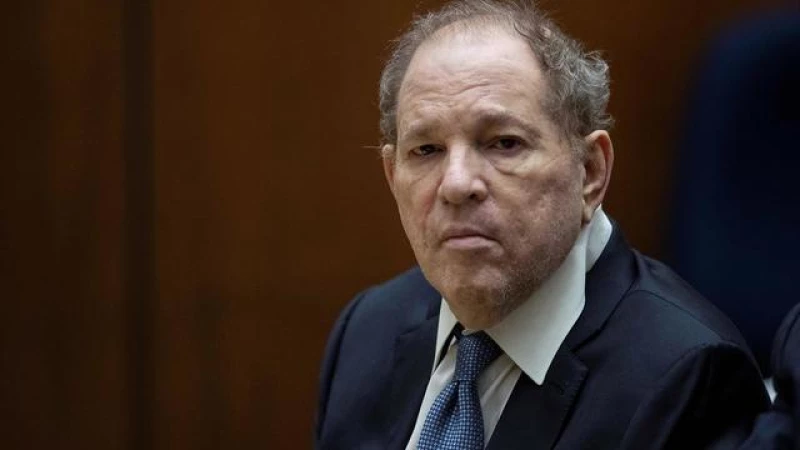Film mogul Harvey Weinstein is set to appear in a New York City court next week, the first step in potentially retrying the 72-year-old after his 2020 rape conviction was overturned.
On Thursday, New York's Court of Appeals threw out the conviction of the onetime movie powerbroker, who prosecutors say forced young actors to submit to his prurient desires by dangling his ability to make or break their careers.
He was convicted of forcibly performing oral sex on a TV and film production assistant and of third-degree rape for an attack on an aspiring actor in 2013.
The appeals court in a 4-3 decision vacated a 23-year jail sentence and ordered a retrial of Weinstein, saying the trial judge erred by letting three women testify about allegations that were not part of the charges and by permitting questions about Weinstein's history of "bad behavior" if he testified. He did not.
The Manhattan district attorney's office has said it intends to pursue a retrial. Prosecutors will work off the same indictment, albeit excluding the charges he was acquitted of four years ago.
"We will do everything in our power to retry this case, and remain steadfast in our commitment to survivors of sexual assault," the district attorney's office said in a statement Friday, according to the Associated Press.
Weinstein remains jailed after he was also convicted in a similar case in California.
But when could this potential retrial happen? Experts told the Associated Press that it won't be coming to a courtroom anytime soon, if ever. They said it really is up to the witnesses, who will need to decide if they want to take the stand again.
"I think there won't be a trial in the end," said Joshua Naftalis, a former Manhattan federal prosecutor now in private practice. "I don't think he wants to go through another trial, and I don't think the state wants to try him again."
Naftalis said both sides may seek a resolution such as a plea that will eliminate the need to put his accusers through the trauma of a second trial.
Deborah Tuerkheimer, a professor at Northwestern University Pritzker School of Law and former assistant district attorney in Manhattan, said whether there is a second trial will "hinge on the preferences of the women who would have to testify again and endure the ordeal of a retrial."
"I think ultimately this will come down to whether they feel it's something they want to do, are able to do," she said.
Jane Manning, director of the nonprofit Women's Equal Justice, which provides advocacy services to sexual assault survivors, agreed "the biggest question is whether the two women are willing to testify again."
The lawyers say the road to a trial will include monthslong battles between lawyers over what evidence and testimony will be allowed at a retrial.
A woman Weinstein was sent to prison for sexually assaulting said Friday she is considering whether she would testify at any retiral.
"It was retraumatizing and grueling and exhausting and all the things," she said during a news conference with her attorney, Gloria Allred. "I definitely don't want to actually go through that again. But for the sake of keeping going and doing the right thing and because it is what happened, I would consider it."
Haley, a former "Project Runway" production assistant also known as Mimi Haleyi, testified at Weinstein's trial that she repeatedly told Weinstein "no" when he attacked her inside his apartment in July 2006, forcibly performing oral sex on her. In a 2020 civil lawsuit, Haley said she was left with horror, humiliation and pain that persists.
In a statement on Friday, New York Governor Kathy Hochul revealed that her team is currently assessing the impact of a recent decision and strategizing on how to ensure that all women feel comfortable coming forward.
Reflecting on the situation, Hochul expressed her concern about potentially hindering the progress made in creating a safe environment where instances of abuse towards women are called out. She emphasized the importance of avoiding any regression that may lead to women feeling silenced, emphasizing the need to safeguard against such setbacks.







